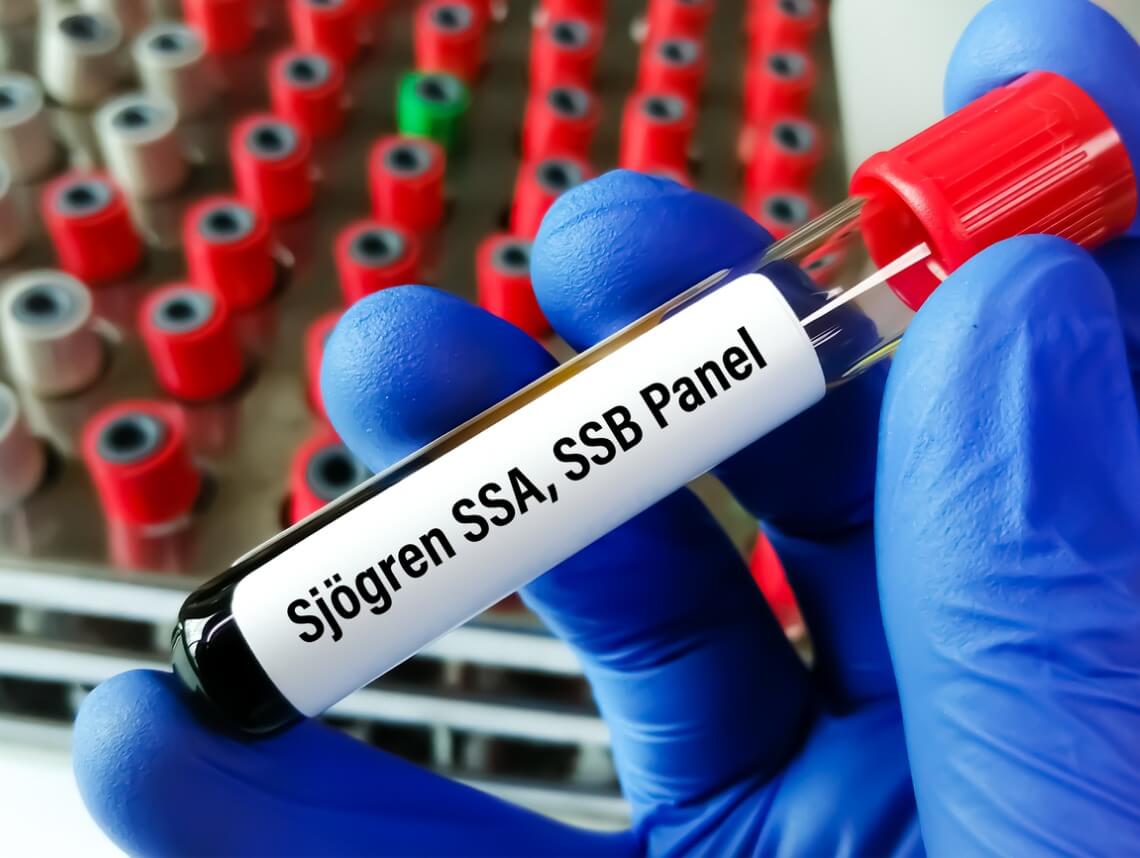Sjogren’s syndrome primarily affects adults but can also occur in children. Sjogren’s syndrome is a chronic autoimmune disorder characterized by inflammation and dysfunction of the exocrine glands, leading to symptoms such as dry eyes, dry mouth, and fatigue. Exocrine glands are special types of glands in our bodies that produce substances, such as sweat, saliva, or digestive enzymes, and release them through ducts to the surface of the skin or into body cavities. Though Sjogren’s syndrome in children presents unique challenges, early diagnosis and management can improve their quality of life. This article delves into details of Sjogren’s syndrome in children, its symptoms, causes, diagnosis, and treatment options.
What is Sjogren’s syndrome in children?
Sjogren’s syndrome in children, often called pediatric Sjogren’s syndrome, is a rare condition with limited research compared to its adult counterpart. While the exact cause of this condition remains unclear, it is believed to have genetic and environmental causes. The primary characteristic of Sjogren’s syndrome is that the immune system mistakenly attacks the body’s moisture-producing glands, reducing saliva and tears.
Symptoms and Challenges of Sjogren’s Syndrome
The symptoms of Sjogren’s syndrome in children are similar to those experienced by adults, though there may be some variations. Common symptoms include:
- Persistent dryness of the eyes and mouth
- Recurrent eye infections
- Fatigue
- Joint pain
- Dental problems
Children may also exhibit additional symptoms such as:
- Growth and developmental issues
- Frequent respiratory infections
- Skin rashes
The diverse nature of symptoms in children can make the diagnosis more challenging, often leading to delays in identification.
Diagnosis and Treatment of Sjogren’s Syndrome
Diagnosing Sjogren’s syndrome in children can be complex, as symptoms may overlap with other conditions. A comprehensive evaluation of medical history, physical examination, and laboratory tests are usually performed to reach a diagnosis. Blood tests can detect specific autoantibodies and markers of inflammation, while imaging tests and biopsies may be conducted to assess glandular function and tissue abnormalities.
Sjogren’s Syndrome Treatment Options
There is no cure for Sjogren’s syndrome. Treatment aims to manage symptoms, relieve discomfort, and prevent complications. Treatment plans for children often involve a multidisciplinary approach, including pediatric rheumatologists.
1. Symptomatic relief
Artificial tears, lubricating eye gels, and saliva substitutes can help alleviate dryness. Chewing sugar-free gum or using saliva-stimulating medications may also provide relief.
2. Medications
Depending on the severity of symptoms, nonsteroidal anti-inflammatory drugs (NSAIDs), immunosuppressive drugs, or corticosteroids may be prescribed to reduce inflammation and manage immune responses.
3. Dental care
Regular dental visits and preventive measures can help maintain oral health, as children with Sjogren’s syndrome may be prone to cavities and dental decay.
4. Patient education and support
Providing children and their families with information about the condition, coping mechanisms, and connecting them with support groups can be beneficial in managing the emotional and social aspects of living with Sjogren’s syndrome.
Sjogren’s syndrome in children is a relatively rare condition that poses unique challenges for diagnosis and treatment. The diverse range of symptoms and the limited research on pediatric cases highlight the importance of increased awareness and research in this area. Early detection, appropriate management, and a multidisciplinary approach can help improve the quality of life for children living with Sjogren’s syndrome. By fostering collaboration between medical professionals, families, and support networks, we can work towards enhancing the understanding and care of children with this autoimmune disorder.
Contact Care Options for Kids for Home Health Care in Florida
It can be hard to balance your time between work, home, and caring for a child. That’s why our team of skilled professionals at Care Options for Kids is here to help.
Our home health care services offer one-on-one care in the comfort of your home. We refer loving and competent nurses to provide customized care for families — from a few hours a day to around-the-clock supervision. Contact us directly to speak with a home health care professional or request a free Pediatric Consultation. Together we can determine the best plan of action to keep your loved ones happy and healthy.
If you or a loved one are considering Pediatric Home Health Care Services in Florida, contact the caring staff at Care Options for Kids. Call today at (888) 592-5855.






